Word Recognition Reading Comprehension Worksheets for Ages 4-7
6 filtered results
-
From - To
Unlock your child's potential with our engaging Word Recognition Reading Comprehension Worksheets, designed specifically for ages 4-7! These interactive worksheets promote essential reading skills by helping young learners recognize and understand words in context. Through fun exercises and vibrant illustrations, kids will enhance their vocabulary and comprehension abilities while fostering a love for reading. Perfect for home or classroom use, our resources target key learning outcomes to support early literacy development. With a variety of activities tailored to different learning styles, your child will be empowered to build confidence and succeed in their reading journey. Explore our collection today!
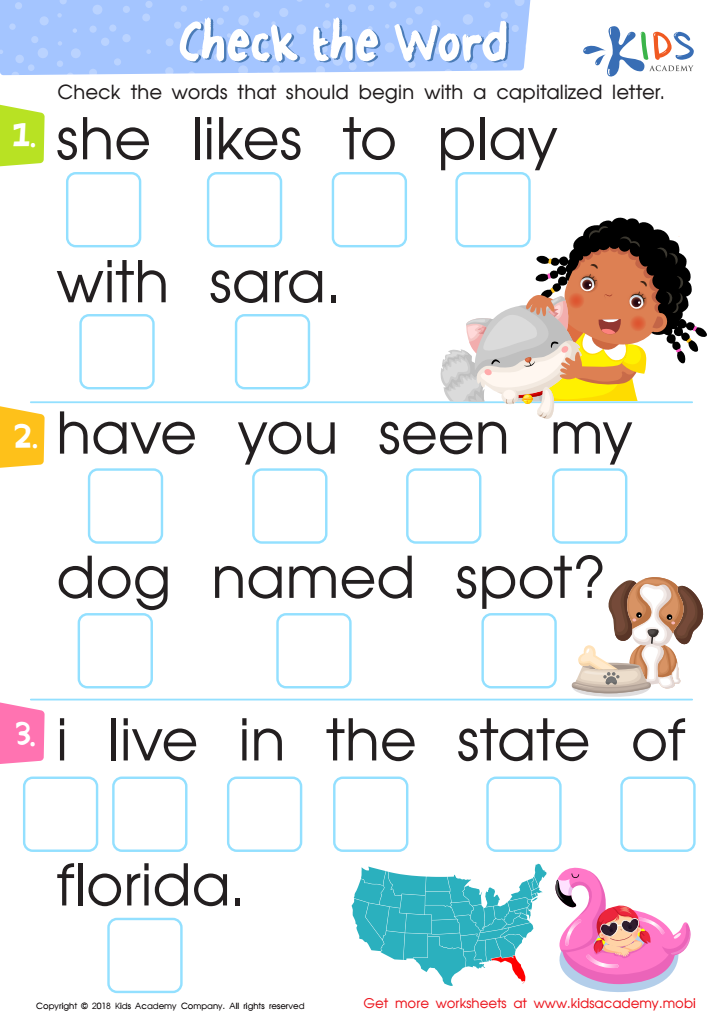

Check the Word Worksheet
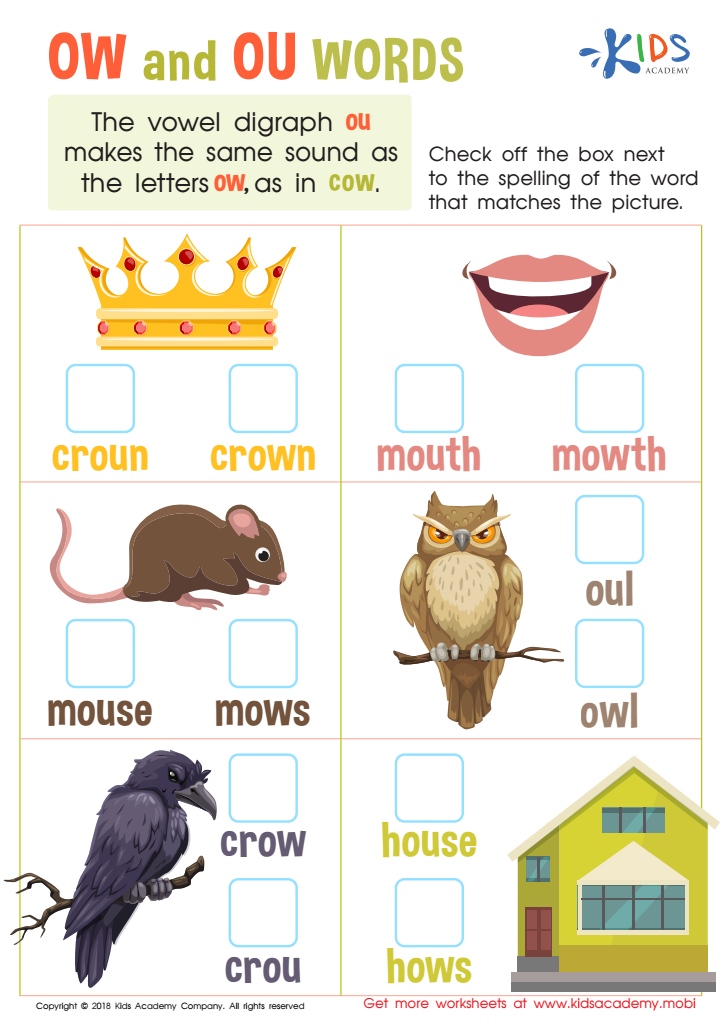

Reading: OW and OU Words Worksheet
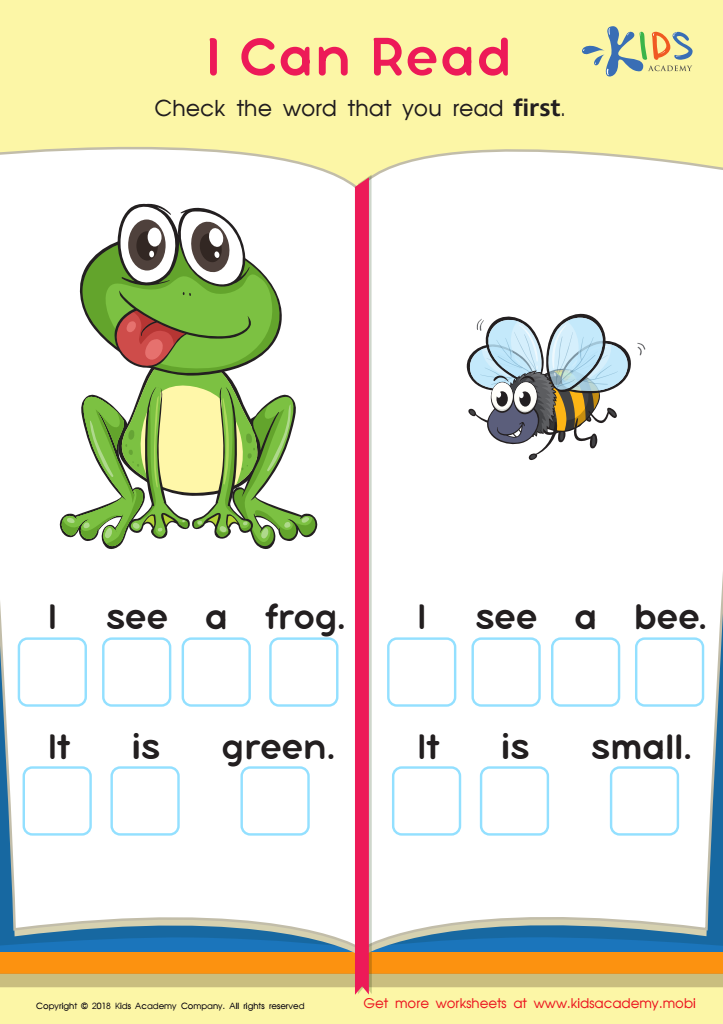

I Can Read Worksheet
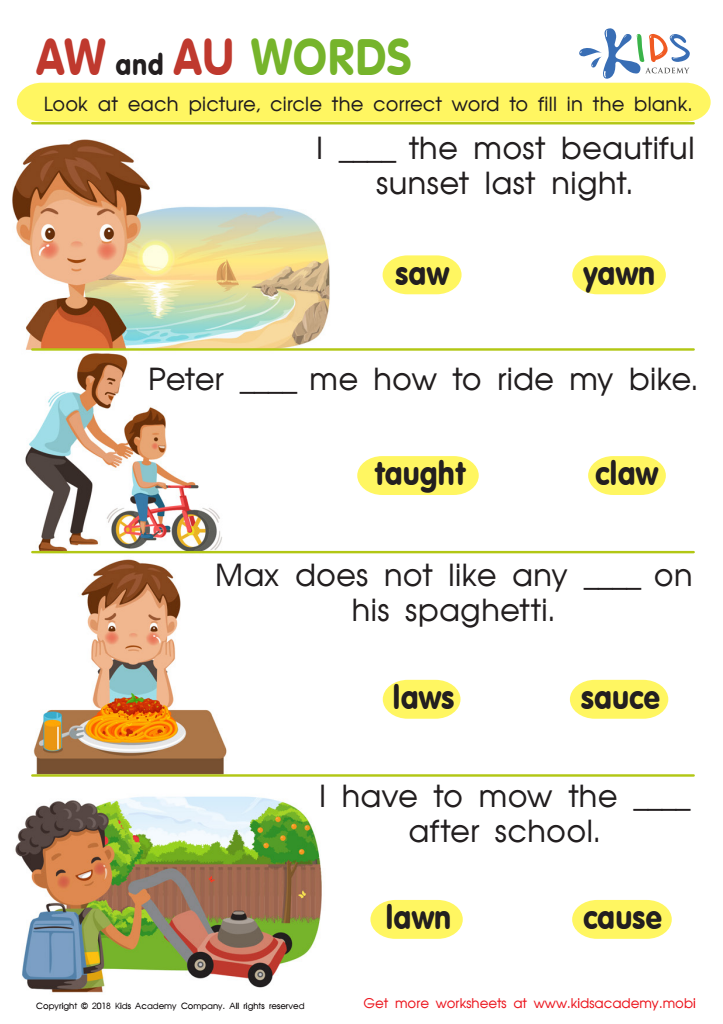

Reading: AW and AU Words Worksheet
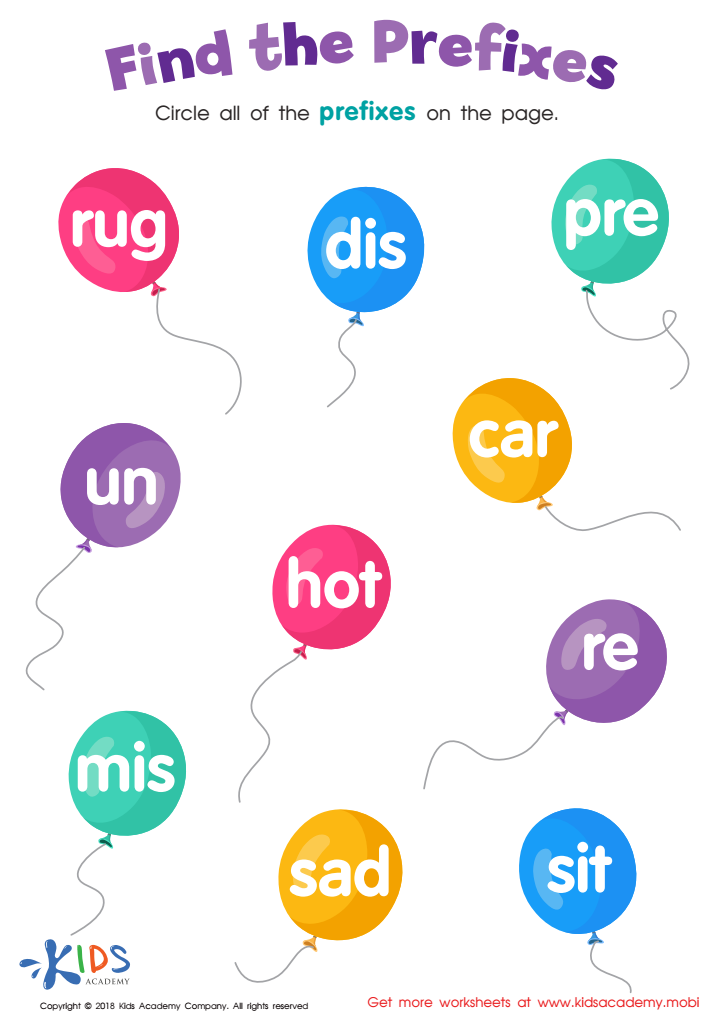

Reading: Find the Prefixes Worksheet
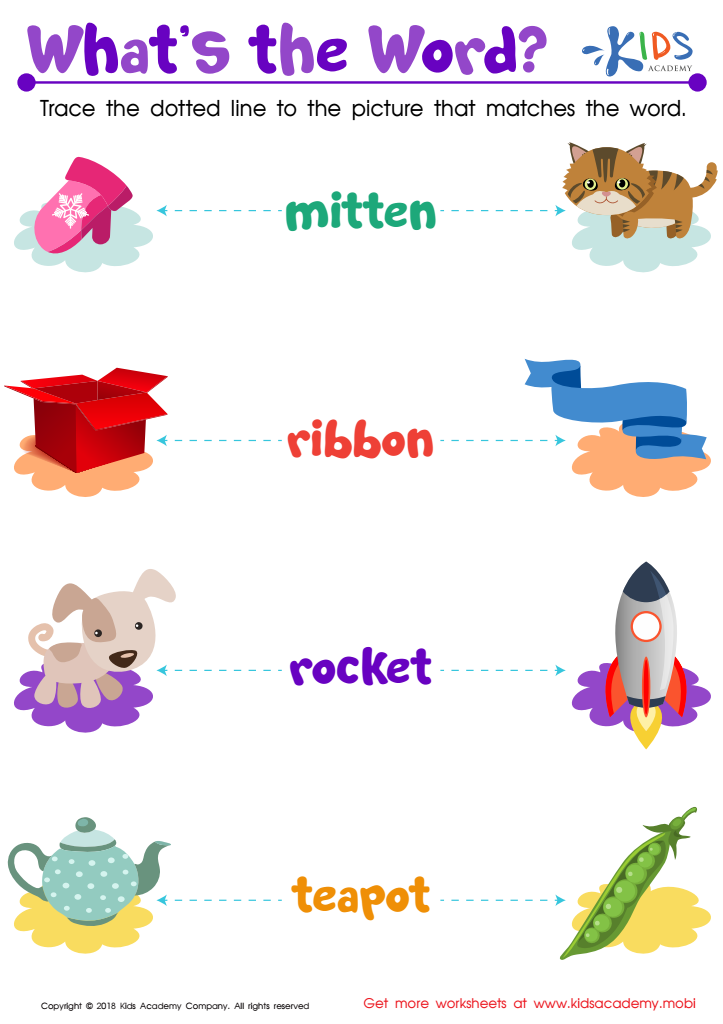

Reading: What's Word Worksheet
Word recognition and reading comprehension are critical skills for children aged 4 to 7, laying the foundation for their educational journey. At this formative stage, children are transitioning from learning letters and sounds to recognizing words and understanding their meanings. Here’s why parents and teachers should prioritize these skills:
Firstly, word recognition helps children read fluently, as they can quickly identify familiar words. This efficiency enhances their ability to focus on the meaning of the text rather than struggling with decoding. When children are confident readers, they are more likely to engage with books and express curiosity about stories and information.
Secondly, reading comprehension is vital for developing critical thinking and inferential skills. When children understand what they read, they can make connections, ask questions, and express their ideas articulately. This cognitive engagement fosters a love for reading and encourages lifelong learning.
Moreover, strong reading skills have been linked to academic success across disciplines. Mastery of early literacy sets children up for future learning, influencing their performance in subjects like math and science.
In summary, investing time in nurturing word recognition and reading comprehension in early education enriches children's lives, empowering them as readers, thinkers, and confident learners.
 Assign to My Students
Assign to My Students




















